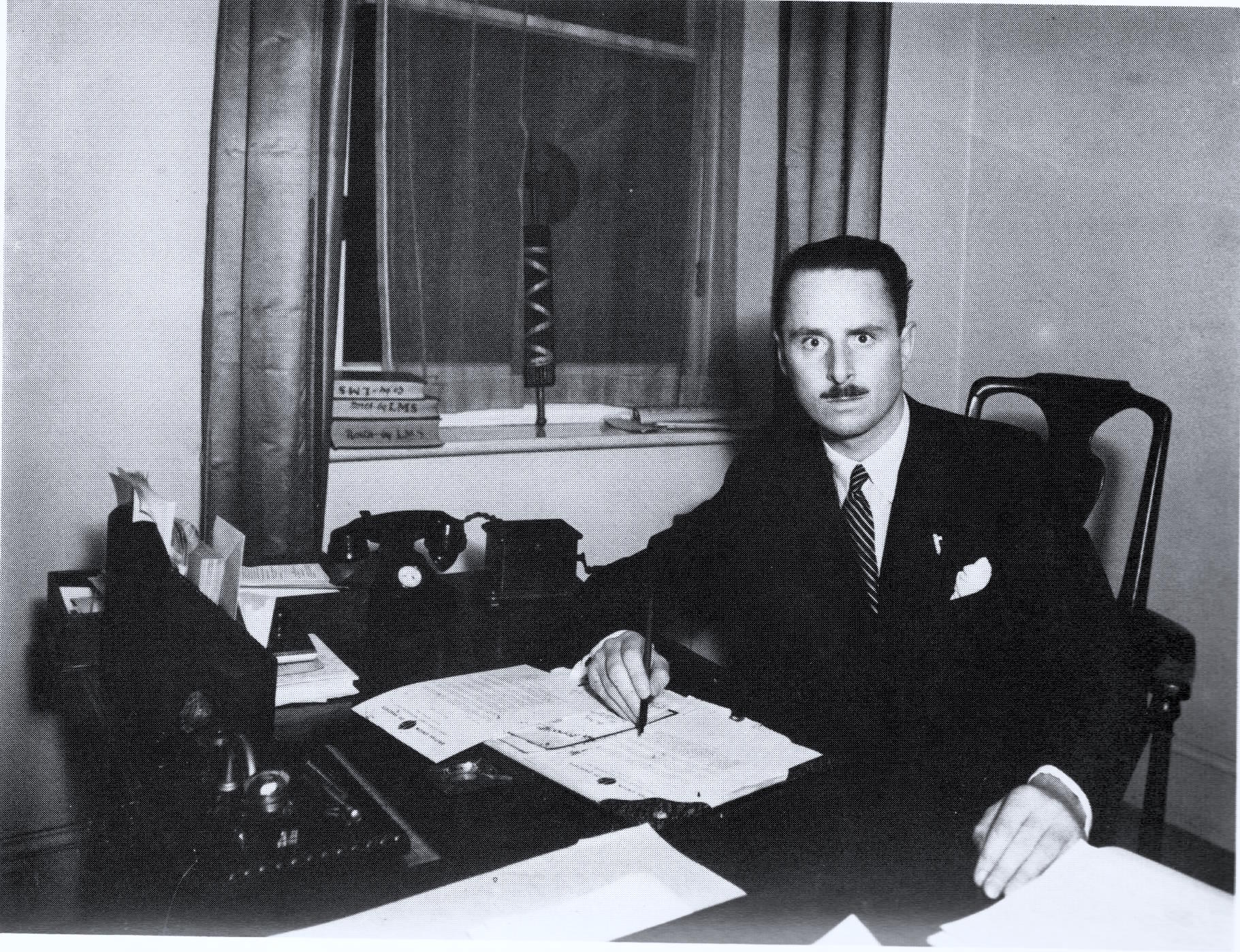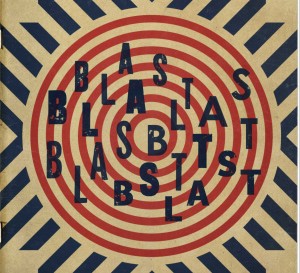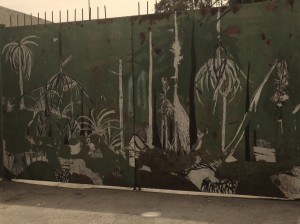
Statements following Oswald Mosley’s meeting in Oxford (May 27, 1936)
by P. Gordon-Walker | February 5, 2015
It is very difficult for the outsider who has not been to a Mosley meeting to realise the menace to democracy and free speech represented by his movement. It is not that the Fascists themselves go about directly causing violence and breaking up meetings: their technique is much more subtle and dangerous than that. Their technique is well illustrated in the recent meeting at Oxford. From the very beginning, a deliberate attempt was made to provoke the crowd and bring it to a high and excited pitch of indignation. The mere presence of Blackshirt stewards along the walls and round the platform was calculated to anger the crowd. There can be little doubt, I think, if Mosley spoke without those provocative, uniformed guards, that he would receive no more than normal heckling and that very soon the general feeling that he should be allowed at least to have a fair hearing would prevail. (It is interesting to note that Mr, Crossman, who suggested to Moslet during the rough-house that, if he withdrew his Blackshirts, we on our part would guarantee him a fair hearing, was thrown roughly off the platform for his pains. After the Nazi Horst Wessel song had been several times played on the loudspeaker, Mosley suddenly appeared on the platform. His first words were that interrupters would be ejected ‘courteously and quietly’. The greater part of his speech was designed to be provocative: he persisted in pretending that an audience, in which workers predominated, consisted only of young undergraduates; he taunted the leaders of the Labour Party with office-seeking and cowardice, etc, etc. The most provocative thing of all, however, was the steady advance, foot by foot, of a squad of 20 tough-looking Blackshirts, down the center gangway from the back of the hall down towards the platform.
Mosley after a time had quite deliberately got the audience into a dangerous temper, when it was obvious that any spark would set them off. At this moment, he suddenly ordered an interrupter, who was persistently asking some questions, to be ejected. It was no doubt the purest coincidence that the advancing phalanx in the center gangway had just reached this man. Mosley’s command was curious, after his announcement that interrupters would be courteously ejected: it was ‘Chuck that man out.’ I have never seen a man so brutally set upon. The phalanx of twenty surrounded the man; he was dragged off his chair by the face, one Blackshirt digging his nails into his cheek. At the same moment, another body of Blackshirts dashed up from the platform, bringing the odds to about 30 to one. At this moment, had the man been courteously requested to go, nothing might have happened. The excessive brutality with which he was handled, however, set a spark to the crowd. It would have needed a man of iron control not to attempt to defend the man, who was being dragged along the floor, and being rabbit punched from behind. He had been unable to make a move in his own defence. In 30 seconds, the hall was in pandemonium, steel chairs were flying, fists were being used. Several people whom I know were only drawn in to defend the women and some young undergraduates who were being attacked four to one.
The appearance of a handful of police brought to an end the ugly situation in which someone might well have been killed. As regards the police, as far as I could observe, the ordinary constable was very fair and prepared to take names of Blackshirts accused by the public of assault. A few higher officials seemed to me to have a very different attitude: they assume the public was in the wrong; one, at least, refused to take the name of a Blackshirt accused of assault. In contrast, the attitude of this official towards Mosley himself was courteous and even subservient.
It may be worth saying a word about Mosley’s speech itself. He was extraordinarily disappointing as a speaker; I can think of a dozen in England who are far finer, simply as orators. Unlike Hitler, Mosley is totally unable to convey even the appearance of sincerity and faith. When Mosley attempted to unfold his constructive case, it was so dull that his audience became evidently bored, and even heckling came to an end. Mosley did not even reveal himself as able to deal well with hecklers; he easily allowed himself to be thrown off his stride, and the argument of his speech was constantly lost. So little did Mosley appear to think of the attractiveness of his own oratory that he constantly held it as a threatened punishment over the heads of his audience that he would continue for half an hour longer than he would otherwise have done. He made constant slips, unworthy of a practised speaker, which turned the laugh against himself, as when he said, speaking of Russia, ‘I will not use Fascist or prejudiced figures.’
It is imperative that the public should realize how easily Mosley can break up free speech. Not himself breaking up meetings, but by deliberately provoking his audience and then causing a rough-house. If we are not careful, Mosley, acting in the name of order and free speech, will be able to destroy both in one town after another.
H. S. Crossman (New College)
I cannot pretend I am sorry that an Oxford audience did not take this ‘sitting down.’ It is Mosley’s peculiar art to make decent law-abiding people see red. In that case it might be better for the decent law-abiding people to leave him to mouth in a vacuum.
Frank Pakenham (Christ Church)
I warmly endorse Mr Crossman’s comments. Whether or no Mosley and his agents are guilty of having committed criminal offences on Monday is for the courts to decide; but in any case, no decent person who was present is likely to attend any more meetings addressed by this grotesque clown. For his dupes, even for the wretched quartet who continued to rabbit-punch me for some time after the uproar had subsided, I feel nothing but pity. They looked timid and uneasy, and anything but happy to have to carry out their leader’s work. Thank God, Oxford is not likely to be impressed by the mechanical bleating of this gimcrack fencing master, so facetious about working-class accents, so deaf to the sound of his own.




